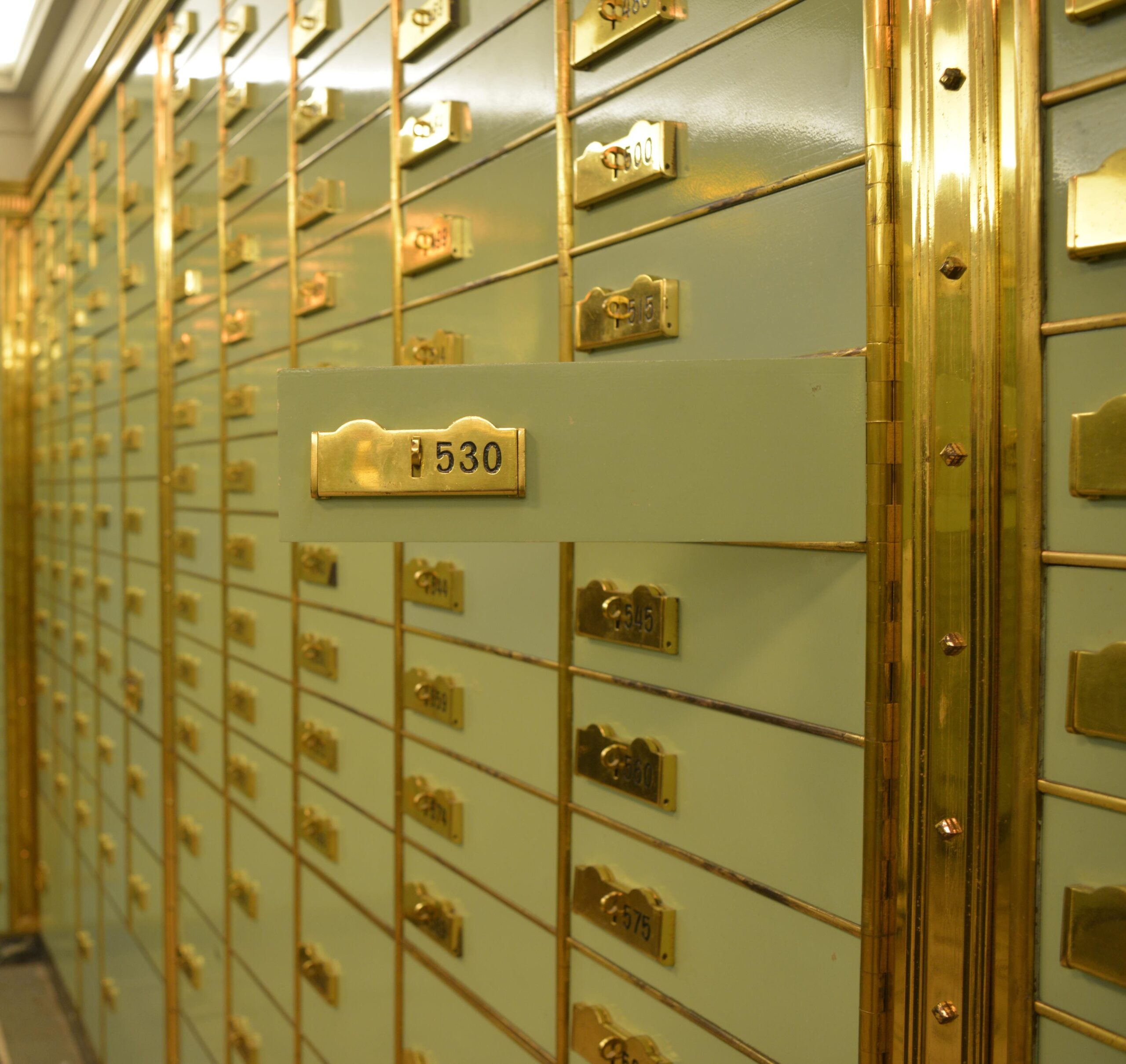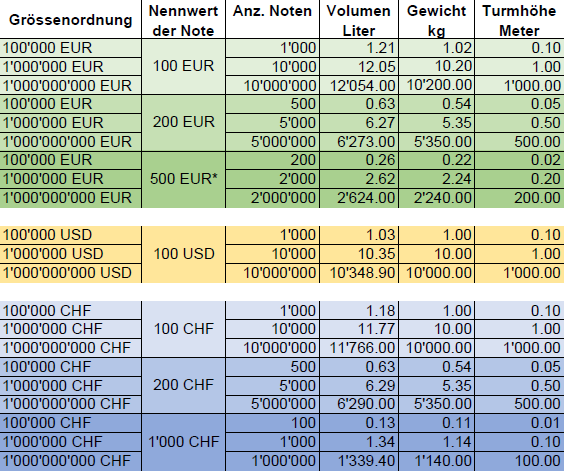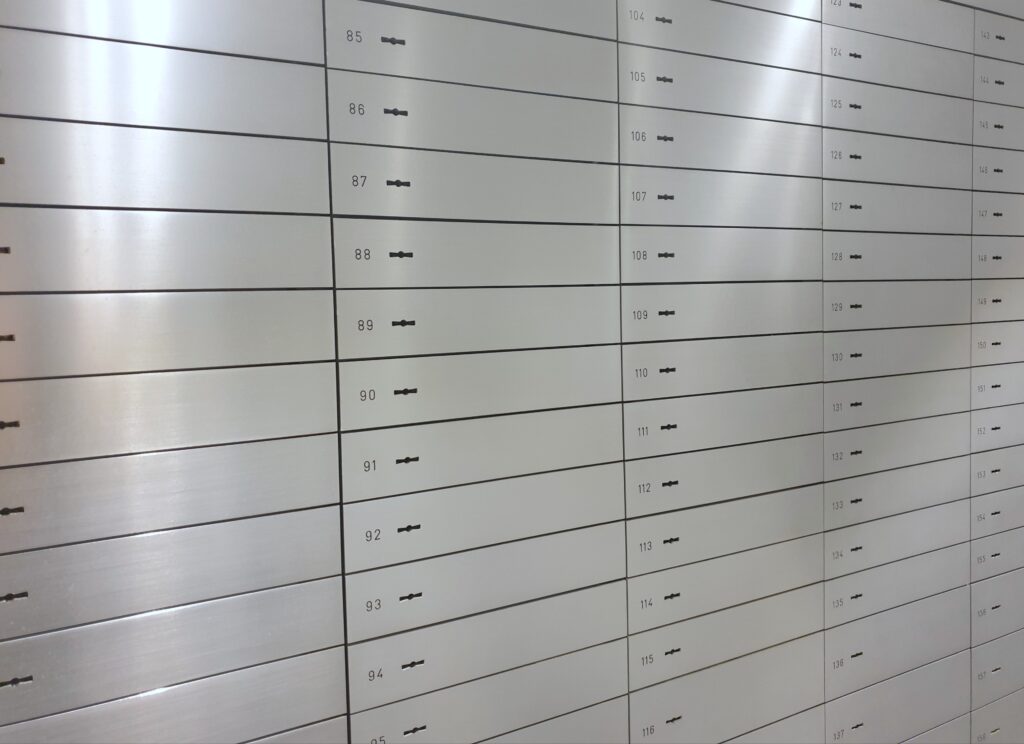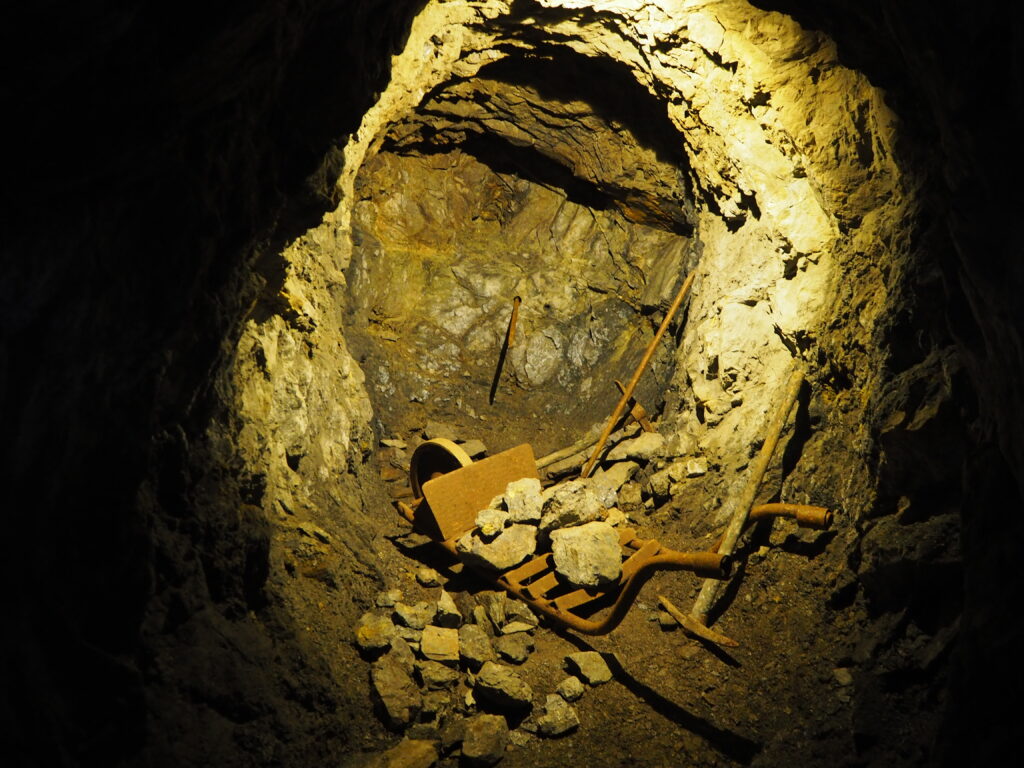Discontinued bank safe deposit facilities: An alternative option
Additional information > Prevailing conditions for value storage in Switzerland and Liechtenstein > Discontinued bank safe deposit facilities: An alternative option
More and more customers have recently received similar letters or emails from their bank relaying what is likely to be far from welcome news: The offending communication from their chosen credit institution announces the complete withdrawal of safe deposit box rental facilities. Loyal, long-established bank customers are often given only a few weeks’ notice to empty their safe deposit box and seek alternative storage arrangements to safeguard the assets currently stored with their bank.
This article examines some of the reasons why headlines like “Bank terminates safe deposit box facilities” now appear so often in the press. At the same time, we also illustrate some available alternatives to a classic bank safe deposit box. We look at important features such as the security and privacy aspects of safe deposit boxes and analyse the advantages an alternative, bank-independent safe deposit box can offer. These turn out to be so significant that switching to a bank-independent safe deposit box is strongly recommended, even if your bank has not (yet) rescinded your own safe deposit box arrangements.

© Marek Brandt - stock.adobe.com
Why might a bank safe deposit box arrangement be discontinued?
These days, it’s not at all unusual for customers to cancel their bank safe deposit box arrangement. Perhaps they may no longer need this service, or may have simply found a better alternative. But why would any bank stop providing an established service from which it derives an income? In fact, there are several possible reasons.
In recent years, banks have begun to close down more and more of their branches. The motive for this kind of action is usually to reduce their operating costs. If you enjoy safe deposit box facilities at a branch office, it would thus be no surprise to find the respective credit institution are no longer prepared to continue your rental arrangement. Some banks may then offer safe deposit box facilities at a main branch as an alternative option, but this can be quite impractical for many customers. In addition, the demand for such an alternative often greatly exceeds the available supply of substitute facilities, meaning that many customers willing to switch are still unable to do so and have to settle for a place on a waiting list.
In addition, all banks now focus more and more on their core business, because this potentially offers the greatest profitable return. Furthermore, banks generally no longer rent out their safe deposit boxes to private individuals. That in turn means a bank’s existing private customers are often the first to be told their bank safe deposit box facilities are about to be withdrawn.
The profitability of safe deposit box systems is another problem. Some banks, and their investment backers, believe that certain types of customer, and safe deposit box rentals in particular, do not bring in enough profit. You can imagine the consequence of this profit-oriented focus: the bank will look to withdraw safe deposit box services – at least for those customers whose activities fail to generate a sufficient level of income for the bank.
In addition to all this, many bank safe deposit systems are now starting to show their age. The same applies to their attendant security systems, which are often outdated and can no longer be described as state-of-the-art facilities. To remedy this situation would require costly investment in modern security technology – something most of today’s banks would much prefer to avoid. As a result, these institutions generally opt to withdraw customer safe deposit box facilities as a more viable alternative to investing the substantial amounts of capital required to update and maintain these services for the future.
More than one bank has already decided to effectively discontinue their safe deposit box service, tacitly limiting the future offer of this facility to select groups of privileged customers. Moreover, one bank has already cancelled safe deposit box arrangements for all customers from abroad.
Alternatives to a bank safe deposit box
If your bank is about to withdraw its safe deposit box services, this could still be less of a problem than you might think, because there are several alternatives to a bank safe deposit box. Should this happen to you, we will now review the alternative options listed below in the light of the most important criteria one should consider when choosing a safe deposit box:
- Rent a safe deposit box from a different bank
- Store your valuables at home
- Choose a bank-independent safe deposit box
Rent a safe deposit box from a different bank
Even if your present bank no longer wants to rent you a safe deposit box, there are probably other credit institutions still willing to do so – there may even be one such institution near you. However, while this may seem a convenient solution, there are many reasons why this may not be a suitable option.
It may only prove to be a matter of time before your new bank also stops offering this service. If and when this happens, the actual reason (e.g. branch closure, redefined customer priorities, or realignment of business focus) won’t really matter. The practical consideration is you will soon have to look for yet another alternative. That is not just annoying, it will once again consume more of your valuable time.
There will also be the disadvantages we have already outlined. Precisely because safe deposit box rentals are not part of a bank’s core business priorities, their respective security technology is rarely up to date and there may be only minimal insurance available, or even none at all. As a result, any protection against burglary or theft risks will almost inevitably be sub-standard.
Things aren’t looking particularly good as regards banking discretion either. Banks in the European Union (EU) and the European Economic Area (EEA) – which also includes Liechtenstein, but not Switzerland – are now subject to comprehensive (and automatic) reporting obligations. These measures are primarily designed to curtail illegal practices, but actually affect all customers, including honest private individuals.
One further alternative could be bank safe deposit boxes outside EU and EEA jurisdiction – Swiss banks, for example, still retain a legendary reputation for discretion. Yet, despite this high level of discretion, those who rent a safe deposit box from a Swiss bank usually have to open a bank account at the same time. In addition to this, such accounts are actually subject to reporting requirements, which, practically speaking, negates the advantages conferred by any degree of Swiss discretion.
Store your valuables at home
If a bank terminates your safe deposit box arrangement, you can of course just keep the assets stored inside at your home. This is definitely a cheaper option than paying out to rent a safe deposit box. Furthermore, you can gain access at any time and will no longer have to rely upon the discretion of third parties. But this particular alternative to a safe deposit box does have some serious disadvantages.
The biggest problem is likely to be the lack of adequate protection. This is especially true if you decide to store your valuables in a supposedly safe hiding place instead of in a safe. Because, unfortunately, professional burglars are wise to this well-worn strategy. And if they should pounce and steal your property, the fact that your storage arrangements were very cost-effective will be little consolation.
But won’t insurers come to your aid in such a scenario? In the majority of instances, sadly not. Any insurer is likely to insist upon comprehensive security precautions as a pre-condition of providing cover. So if your protection arrangements fall short, then an insurer will usually refuse to insure your property. And even in the unlikely event you could persuade an insurer to overlook any inadequate security measures, your policy would then be subject to a very high premium to reflect the increased risk.
Of course, you could always arrange to have a professional security system installed in your home. Indeed private individuals can now obtain the most modern technology on the open market – technology which was previously only available to a commercial business. However, this too would make your home protection a rather expensive project.
In short: You can (theoretically) store valuables relatively safely at your home. However, this will involve a lot of effort and the associated investment costs are likely to be prohibitive.
Choose a bank-independent safe deposit box
But there is another alternative to a classic bank safe deposit box. Specialist storage companies also offer safe deposit boxes for non-bank customers, and a bank-independent safe deposit facility comes with numerous advantages.
If security is important to you, a bank-independent safe deposit box is a good choice. This is especially true if you choose a company which specialises in the safe storage of valuables and has the requisite expertise in this field. The security measures on offer in this context are invariably high quality, which means any assets and valuables stored in your rented safe deposit box would be very well protected.
Even if an unfortunate event occurred, you would almost certainly be in a better position than if you had stored your valuables elsewhere. This is because reputable companies such as Swiss Gold Safe always provide you with free basic safe deposit box insurance. In addition, you can always opt to increase this basic cover to reflect the full value of your stored contents – generally at much more favourable terms than would be quoted to cover a bank safe deposit box, or to provide cover for assets stored within your home.
When you rent a non-bank safe deposit box, you only pay for the services you actually require. However, the situation can be very different where a bank safe deposit box is involved. For instance, opening a bank account – which often attracts further additional costs too – is a mandatory requirement if you rent a safe deposit box from a bank.
If your safe deposit box arrangement is independent of the banking system, this will almost certainly introduce a higher level of discretion. Any relevant data-reporting obligations only apply to bank customers or bank account holders. All banks, and similar financial institutions, are obliged to observe the provisions of the AEOI (Automatic Exchange of Information) regulations. And if you wish to add a further level of data protection, we strongly recommend choosing a storage provider outside the European Union. In such circumstances, the important thing is to find a country that meets a very specific requirement profile:
- geographic proximity
- a high level of discretion
- political stability
- uncompromising protection of property rights
- economic stability
Switzerland is one country that meets all these requirements. That’s why a bank-independent safe deposit box in Switzerland is the best choice for anyone looking to review their present safe deposit arrangements. A bank-independent safe deposit box in Liechtenstein is another alternative: Both countries have a strong economy supported by a reliable currency of global repute. Each enjoys a reputation for sound data protection protocols and a high level of discretion. In addition, Switzerland and Liechtenstein are stable democracies with modern infrastructures. Each state also offers good geographic access for citizens from EU countries. For all these reasons, Switzerland or Liechtenstein are the top destinations to consider for those seeking to switch to a bank-independent safe deposit box.
Summary:
- Banks are increasingly terminating their customer safe deposit rental facilities.
- The primary reasons are: branch closures, a focus on core bank business operations, and retargeting services to prioritise certain privileged customer groups.
- Switching to another bank is not usually a good idea: There is a risk similar problems may recur and bank security technologies are often outdated.
- Storing valuables at home involves high security risks or demands massive investment in a security system.
- Renting a safe deposit box from a specialist storage company is an excellent alternative to a bank safe deposit box or storing your valuables at home.
- Reputable storage providers from Switzerland or Liechtenstein not only guarantee a high level of security, but also offer professional data protection and an exceptionally high level of discretion.









